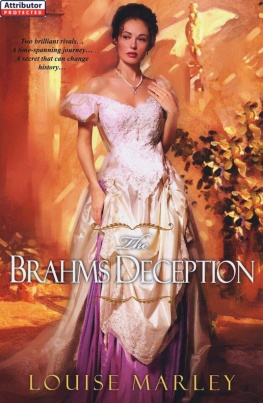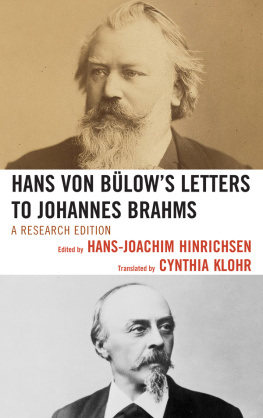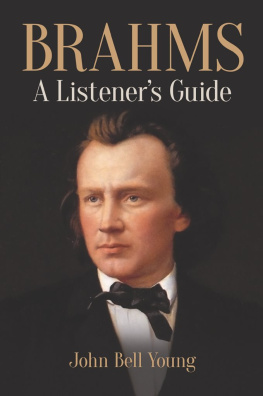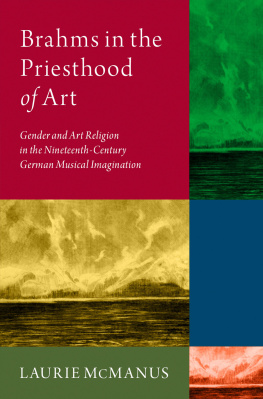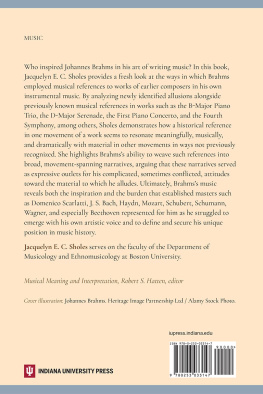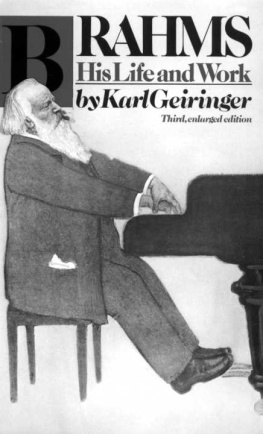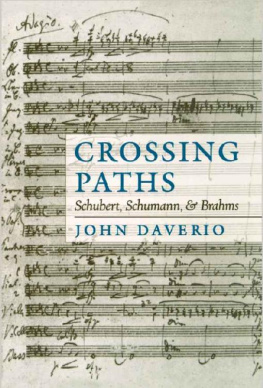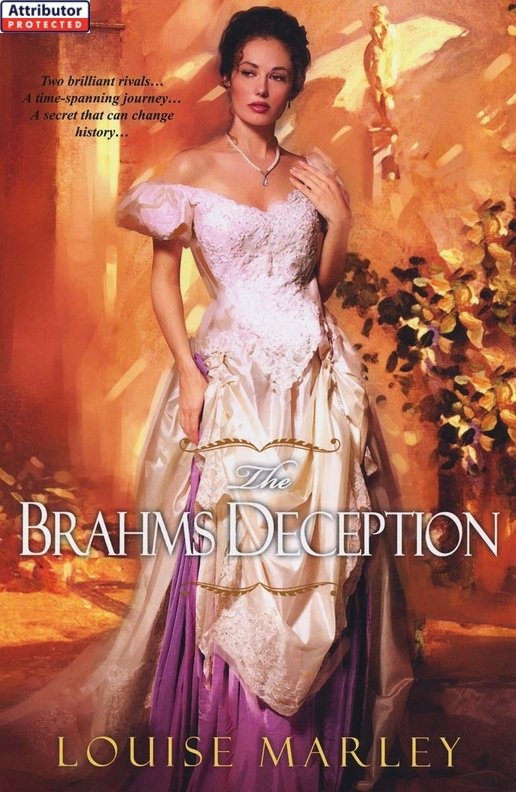A CKNOWLEDGMENTS
As I have done so often, Ive depended on the advice and sharp eyes (and ears) of Zack Marley, Catherine Whitehead, Kay Kenyon, Sharon Shinn, Cat Rambo, and Brenda Cooper. All of you are gifted writers and generous critiquers, and I thank you from the bottom of my heart. Thanks also to my wonderful editor at Kensington, Audrey LaFehr, as well as my faithful and hardworking agent, Peter Rubie.
A special acknowledgment is due the editor Lou Anders, of Pyr Books, who first bought and published the short story on which this novel is based. p dolce appeared in Fast Forward I, one of his fine anthologies, in 2007.
A voice teacher told me once I was born to sing Brahms. I did, in fact, have a special love for his music, and I was privileged to be able to sing many Brahms songs in concerts and recitals. Im grateful to the Master for his entire body of work.
CODA
Late that same night, Clara woke abruptly and lay staring at the brass chandelier above her bed. Moonlight shining off the fresh snowfall filled her bedroom with its silvery reflection. She sat up, and pushed back a lock of hair that had escaped her nightcap. She saw everything as easily as in daylight, the bulk of her wardrobe, the pitcher and ewer on the washstand. Mementoes of her jubilee celebration still hung around the oval mirror above her dressing table.
She felt the tug that had become familiar over the years. The first time it had happened she had been still young. She hadnt expected, then, that it would happen again. The visions seemed to come when she least expected them, and she thought that was because they were not about her. Her story had already unfolded, while hiswhoever he waswas still developing.
She got out of bed. At the foot she had laid a knitted shawl, and she wrapped this around her shoulders before she crossed the cold floor to the window. He wasnt here yet, but he would be. She knew this feeling, this sense that she was being called. It had been years since she had felt it, but time did not seem to lessen its insistence.
She looked out the window to see the snowy streets, the pristinely blanketed gardens, the spires of the churches rising in the distance, glittering faintly in the moonlight. It felt good, she thought, to be looking forward to Christmas, to have her children about her, to have Hannes in the house. She was getting old, but that was not what mattered. Her family mattered, and her work. Her reputation mattered, and Roberts memory. Roberts legacy. At this moment, in the depth of winter, she was content.
She shivered against the chill seeping in through the glass. As she drew her shawl tighter around her shoulders, she turned her back to the window.
He was standing just inside the door of her bedroom. He wore his customary smooth, shiny coat, made of some material she didnt recognize. It was short, and he wore it open over a shirt with the collar undone. His trousers were made of some rough fabric, with slanted, stitched pockets and bits of what looked like hardware here and there. Like Hannes, he was young, and strong, and handsome.
And this time he wasnt alone.
Oddly, the young woman at his side wore the same rough trousers, but she wore a thick sort of shirt over them, with a high collar that folded just under her pointed chin. She was small and very pretty, with curling, disarrayed hair and a short, straight nose. He had his arm around her, and they were both laughing, leaning together, walking. Clara smiled to see them, though an ache of nostalgia for her own youth made her press her hands to her heart.
The girl seemed not to see her, but hehe turned his head, and his eyes widened. They looked at each other, Clara and the boy, for a long, tender moment. He kept walking, but his eyes followed her, keeping her in sight until he was looking over his shoulder. It was illusion, of course, but it seemed he and the girl walked across her bedroom and vanished through the wall behind the wardrobe.
Clara knew, at that instant, that she would not see him again. The era in her life that had begun in Castagno in 1861 had come to a close.
Though her bare feet were freezing, she turned back to the window and gazed out on the peaceful winter scene. She was old, but in the still of the night, like this, she remembered her mother reading to her, recalled it as if it were yesterday.
Down I go, but I do not stay,
Up again, up, as high as I may.
Voices call, but I do not hear,
A little bird in the sky so clear,
Down and up, and up and down,
A little lark in a silken gown.
Perhaps, after all, she would try to set the poem to music, to re-create the song that had been lost. She would write it to please Hannes and give it to him privately. She would offer it to him as a Christmas gift, a little secret present. It would be a memento of their time together. No one need ever know.

